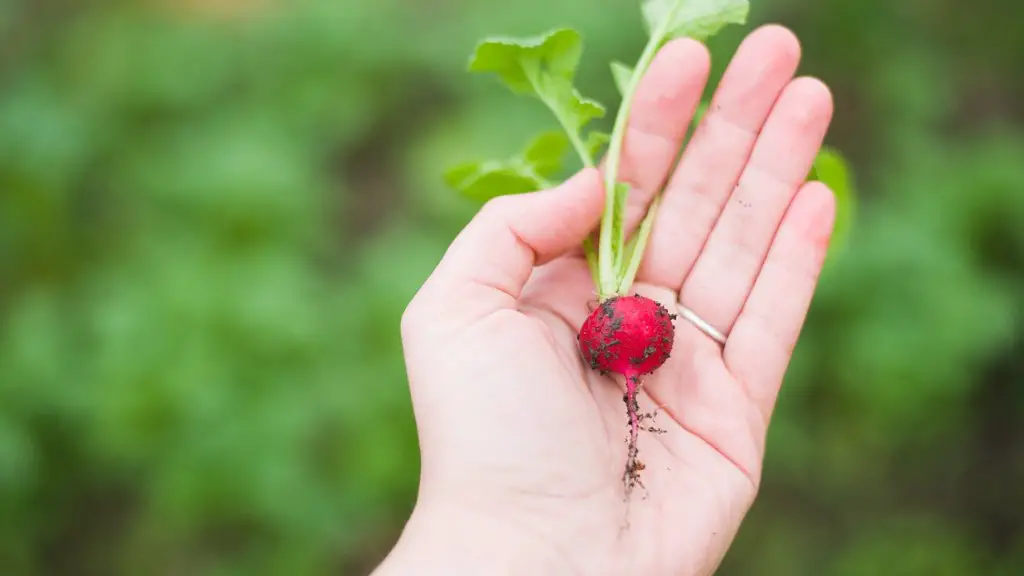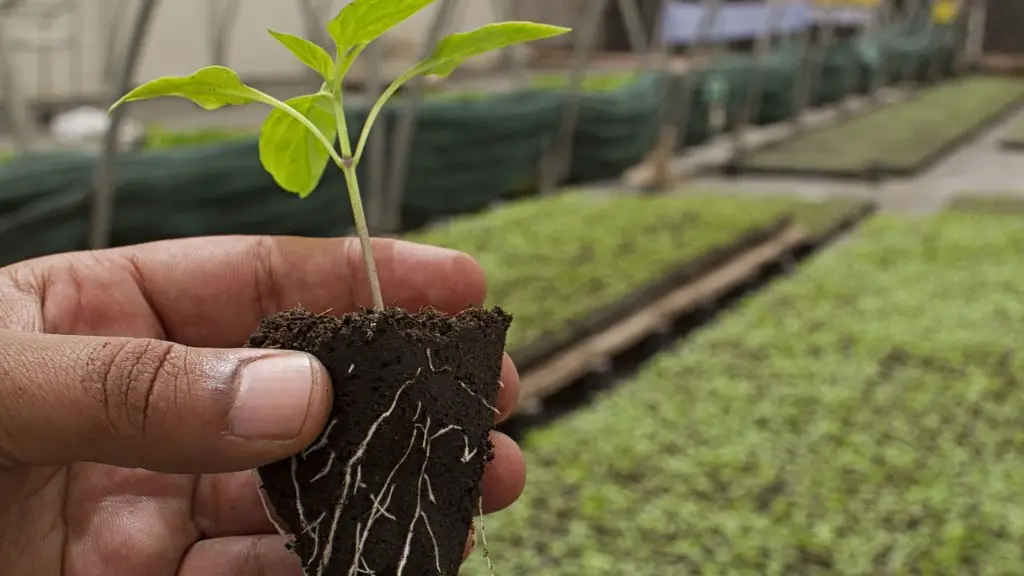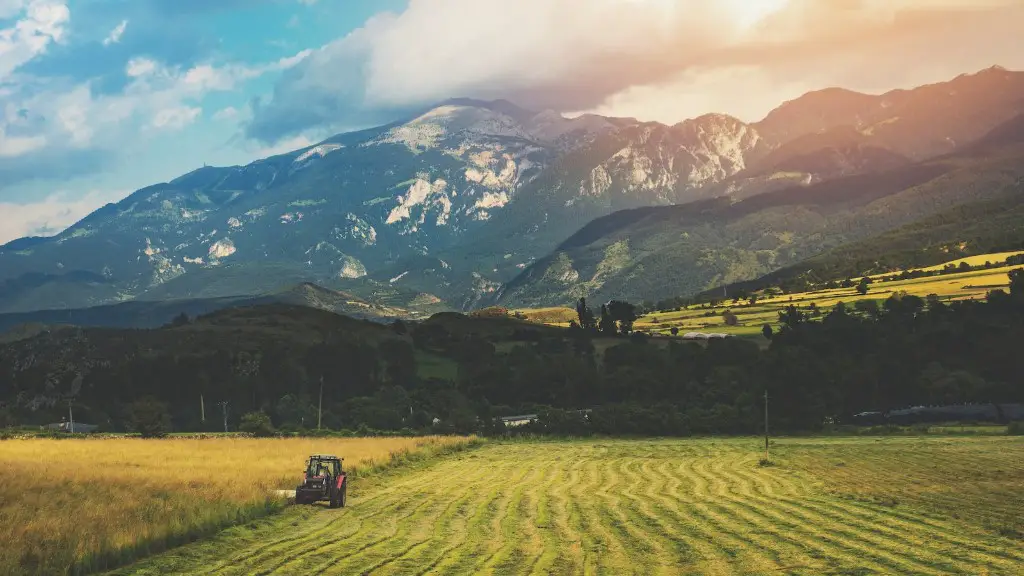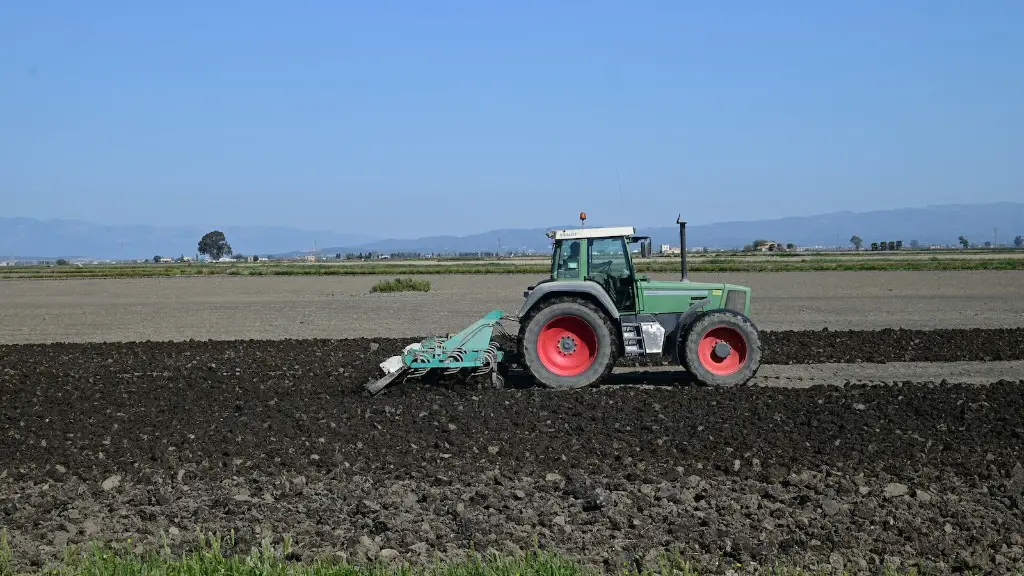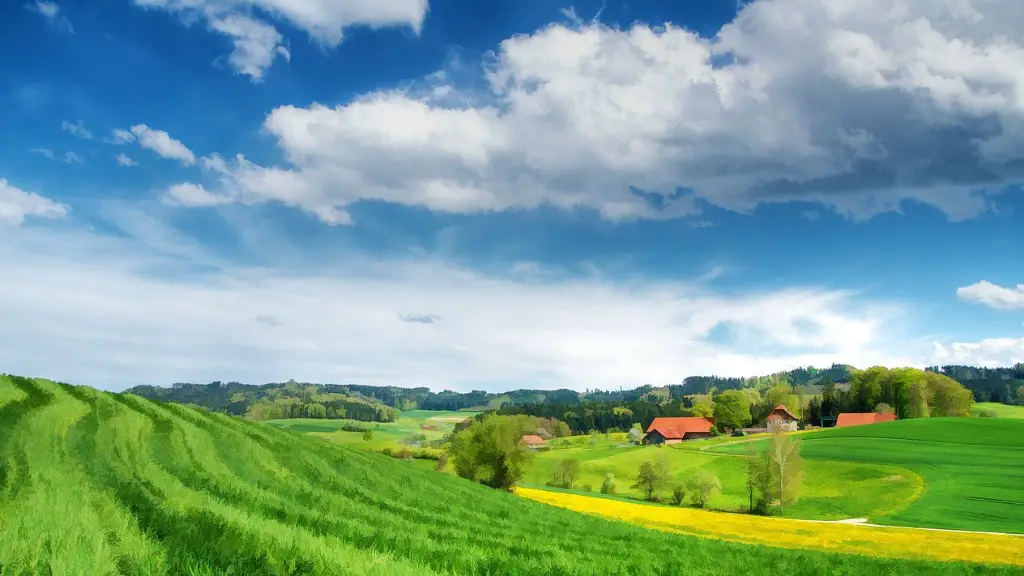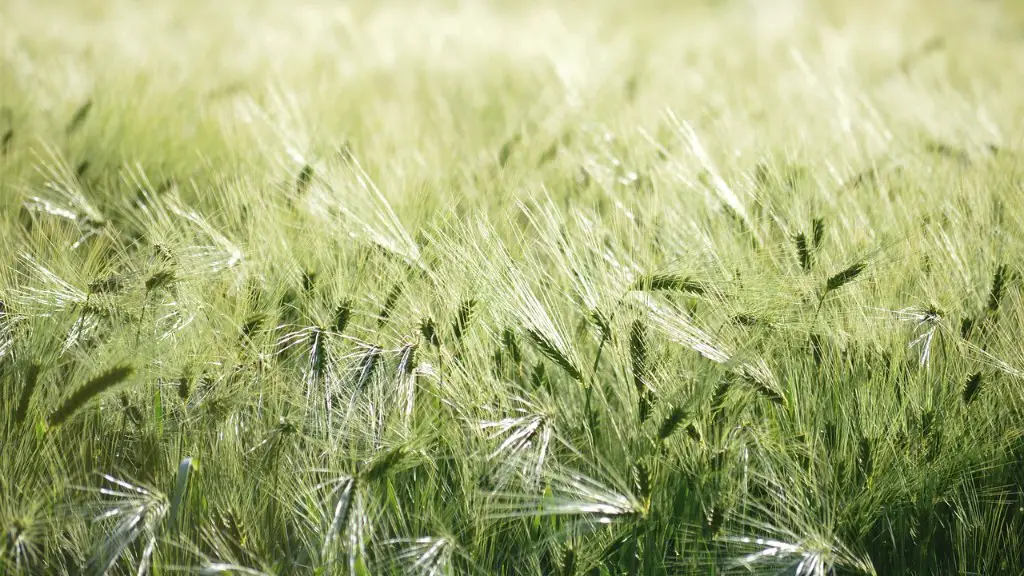Non-EU agriculture is a term used to describe the agricultural activities of countries outside the European Union (EU). This includes production activities such as cropping, animal husbandry, and aquaculture. Non-EU agriculture also includes the transport, storage, and sale of agricultural products, as well as agri-environmental policies that govern the management of land and water resources.
Non-EU agriculture is an increasingly important source of food and agricultural products for the EU. The total trade in agricultural products between the EU and non-EU countries has been steadily increasing over the past two decades, making up almost half of the value of all agricultural trade. This has been largely driven by increased global demand for agricultural products, as well as the strong competitive position of the EU in the global market.
Non-EU agriculture has been increasingly affected by climate change in recent years. Higher temperatures, altered rainfall patterns, and more frequent and severe storms have led to more volatile and unpredictable weather patterns. This has had a significant impact on the agricultural sector, resulting in decreased crop yields, increased risk of disease, and increased pressure on water resources.
Non-EU agriculture is also drastically affected by changes in global markets. Increased competition from other regions has put pressure on producers to become more efficient, while rising energy and transportation costs have made it more difficult to get products to market. The ability of producers to respond to these changes has been limited by the lack of access to capital, as well as a lack of certainty in a number of policy areas.
In addition to market forces, non-EU agriculture is increasingly being impacted by the policies of the EU. EU agricultural policy has been notably protectionist, with high tariffs on imported products and export subsidies for EU producers. This has had a direct impact on the competitiveness of non-EU producers and has led to increased displacement of producers from outside the EU.
Non-EU agriculture has also been the target of a number of EU initiatives, such as the Global Food Security Initiative (GFSI) and the Common Agricultural Policy (CAP). Both of these initiatives have sought to draw Europe closer to global markets and to increase its own competitiveness within them. This has resulted in increased opportunities for non-EU producers to access markets, as well as increased financial support for agriculture and food security.
Non-EU agriculture is a complex and growing sector of the global economy, and one which will be increasingly important in the years ahead. The challenges faced by non-EU producers are significant, and there is a need for governments, the private sector, and civil society to work together to ensure that the agricultural sector remains viable and resilient in the face of global change.
The Challenges of Non-EU Agriculture
Non-EU agriculture faces a number of challenges, ranging from market volatility and economic instability, to global competition and climate change. These challenges are compounded by the fact that many non-EU countries lack the capacity and resources to adequately adapt to these changes. This puts non-EU producers in a precarious position, as they struggle to remain competitive in the global marketplace, while also trying to protect their own food security.
The challenges faced by non-EU agriculture can be broadly divided into two categories: those related to markets and those related to the environment. On the market side, producers are increasingly being exposed to competition from other regions, as well as fluctuations in market prices. This presents a significant challenge to producers, who must adjust their production strategies to remain competitive in the global market.
On the environmental side, non-EU producers are increasingly vulnerable to climate change and its associated impacts. This includes increased temperatures and altered weather patterns, as well as more frequent and severe storms, floods, and droughts. These impacts can have a profound effect on agricultural production, resulting in lower yields, increased risk of disease, and decreased water availability.
In addition to these challenges, non-EU agriculture also has to contend with government policies that can be unpredictable and out of sync with market forces. High tariffs on imported products, export subsidies, and fluctuating policies on land and water management can have a detrimental effect on non-EU producers and make it difficult to remain competitive in the global market.
Finally, non-EU producers are often hampered by a lack of access to capital, technology, and market information. This lack of resources makes it difficult for producers to respond to changes in global markets or technological advances, and leaves them exposed to competition from other regions.
The Impact of EU Policies on Non-EU Agriculture
The policies of the European Union (EU) have had a significant impact on non-EU agriculture over the past two decades. As the EU’s agricultural policy has become more protectionist, it has led to increased tariffs on imported products and export subsidies for EU producers. This has resulted in increased competition for non-EU producers and has had a direct impact on their ability to access markets.
In addition to tariffs, the EU’s Common Agricultural Policy (CAP) has had a significant impact on non-EU producers. The CAP combines production subsidies and market regulations that help to ensure a stable agricultural economy for EU producers, but which can hamper non-EU producers’ ability to access European markets.
The EU has also implemented various initiatives aimed at increasing food security globally. This includes programs that promote sustainable agriculture and increase access to markets, while also supporting initiatives to mitigate the impacts of climate change. While these initiatives have had a positive overall impact on non-EU agriculture, they often come with conditions and restrictions on foreign producers.
Finally, the EU has sought to increase its own competitiveness in global markets by negotiating free trade agreements with non-EU countries. While these agreements can offer increased access to markets, the terms often favor EU producers and leave non-EU producers at a competitive disadvantage.
Responding to the Challenges of Non-EU Agriculture
Non-EU producers face significant challenges in responding to changes in the global marketplace and in adapting to the impacts of climate change. As such, governments, the private sector, and civil society all have a role to play in ensuring that non-EU agriculture remains viable and resilient. This includes providing financial support, access to technology and markets, and strengthening the capacity of producers to adapt to changing conditions.
Governments can play a key role in this regard by providing a stable and predictable policy environment that supports the long-term viability of non-EU agriculture. This includes providing access to capital and technology, as well as policies that protect producers from market volatility and unfair competition.
The private sector can also help to provide producers with access to capital, technology, and markets, while also helping to improve the efficiency and resilience of production operations. This includes providing access to financing, training, and market intelligence, as well as investing in research and development to develop more efficient and sustainable production technologies.
Finally, civil society organizations can help to facilitate dialogue between producers, policy-makers, and the private sector. This can help to ensure that the needs of producers are adequately addressed in the policy-making process and that the interests of all stakeholders are taken into account when it comes to the development of agricultural markets.
The Role of International Trade in Non-EU Agriculture
International trade has an important role to play in the success of non-EU agriculture. Trade allows producers to access markets and customers that might not otherwise be available to them, resulting in increased economic opportunities and increased food security.
However, international trade can also have its drawbacks. The terms of trade agreements can favor producers in the importing country, while providing limited access to foreign markets. Trade negotiations can also be hampered by policymaking processes that are often complex and bureaucratic. This can lead to delays in negotiations, while also making it difficult to ensure that agreements are fair and equitable.
In addition to the challenges of international trade, non-EU producers also have to contend with the increasing prevalence of market distortions. These include subsidies and other forms of market intervention that can make it difficult for non-EU producers to access markets. This can result in increased uncertainty and volatility for producers, as well as decreased access to important markets.
Finally, non-EU producers are often at a disadvantage when it comes to negotiating trade agreements. This is due to a number of factors, including the lack of resources and capacity within non-EU countries, as well as the ability of the EU to leverage its size and influence in the global arena.
Conclusion
Non-EU agriculture is a complex and growing sector of the global economy, and one which will be increasingly important in the years ahead. Producers are faced with a number of challenges, including market volatility, economic instability, climate change, and government policies that can be unpredictable and out of sync with market forces. In order to remain viable and resilient, producers need access to capital, technology, and markets, as well as strong government policies and international trade agreements that are fair and equitable. By addressing these challenges, the sector can continue to grow and provide food and agricultural products for the world.
